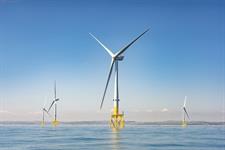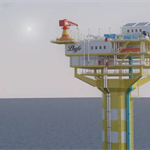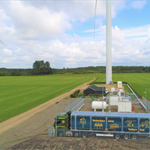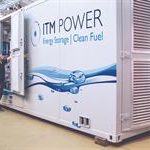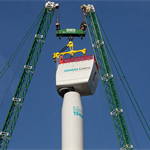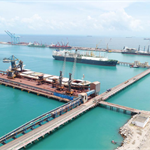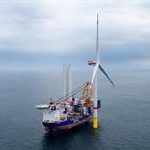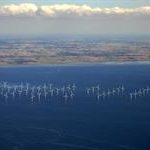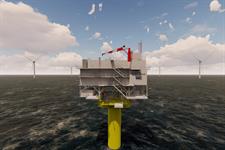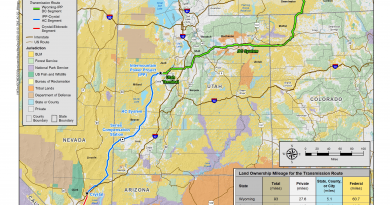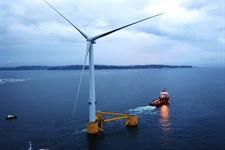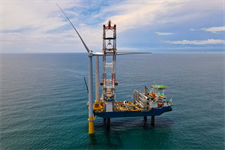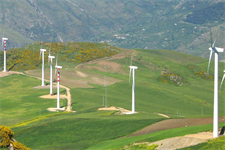Vattenfall to pilot green hydrogen-producing offshore wind turbine
Energy Disrupter

Vattenfall hopes to become the first company to integrate an electrolyser within an offshore wind turbine after securing £9.3 million (€10.9 million) in grant funding from the British government.
With its Hydrogen Turbine 1 (HT1) project, the Swedish developer aims to demonstrate full-scale hydrogen production within an operational wind farm – its 93.2MW Aberdeen Bay – European Offshore Wind Deployment Centre (EOWDC) Aberdeen Bay – European Offshore Wind Deployment Centre (EOWDC) (93.2MW) OffshoreAberdeen Bay, Scotland, UK, Europe Click to see full details off the east coast of Scotland, which features 11 of Vestas’ V164-8.8MW turbines.
One turbine will have all its power dedicated to hydrogen production. The electrolyser – which Vattenfall stated would have a capacity of 8MW – will be integrated with the turbine. The project comprises installation of the desalination, electrolysis and associated balance-of-plant equipment, which will be housed on a platform around the turbine base and has to be integrated with the turbine power electronics. The hydrogen will be piped to shore for processing and delivery to end users.
Vattenfall wants to commence operation by early 2025. It explained HT1 is a vital step in its plan to scale up to GW-sized projects by 2030, and “using existing assets we will expedite development time, maximise cost efficiency and provide learnings for the entire offshore wind industry”.
Other parties interested in hydrogen production include Siemens Gamesa, which has a five-year project to integrate an electrolyser in its 14MW turbine underway. Siemens Gamesa stated it is aiming for a fully integrated offshore wind-powered green hydrogen solution by 2025 or 2026.
Vattenfall secured funding from the UK’s net zero innovation portfolio low carbon hydrogen supply 2 competition, through which the goverment aims to identify, support and develop “credible innovative hydrogen supply or enabling technologies”.
A related funding stream saw a £300,000 grant to BPP Technical Services to investigate the design feasibility and economics of production of hydrogen from floating wind farms. While system components such as electrolysers and wind turbines are commercially available, overall system design and integration is less developed. The UK government added that floating wind developers need reliable designs with predictable performance.

